This article was co-authored by Kimberly Tan. Kimberly Tan is the Founder & CEO of Skin Salvation, an acne clinic in San Francisco. She has been a licensed esthetician for over 15 years and is an expert in mainstream, holistic, and medical ideologies in skin care. She has worked directly under Laura Cooksey of Face Reality Acne Clinic and studied in-person with Dr. James E. Fulton, Co-creator of Retin-a and pioneer of acne research. Her business blends skin treatments, effective products, and education in holistic health and sustainability.
There are 15 references cited in this article, which can be found at the bottom of the page.
wikiHow marks an article as reader-approved once it receives enough positive feedback. This article received 21 testimonials and 91% of readers who voted found it helpful, earning it our reader-approved status.
This article has been viewed 1,973,996 times.
Skin care involves more than just cleaning it and using lotion. It also involves having a healthy diet, getting enough sleep and exercise, and managing stress levels. Your unique skin type may also determine any additional treatments as well, such as using exfoliating scrubs or moisturizing masks.
Steps
Keeping Your Skin Soft, Clean, and Moisturized
-
1Wash your face twice daily to keep it oil-free, improve complexion, and prevent breakouts. You should wash your face in the morning when you get up, and in the evening before going to bed. Use lukewarm water and a facial cleanser suitable to your skin type. You can wash your face with clean hands, a washcloth, or a soft sponge.
- Follow up with some toner and moisturizer.
- If you wear makeup, remember to remove it as well.
- Don't forget about the skin on your neck! This is often overlooked.
-
2Skip the hot water when bathing or showering, and use lukewarm water instead. Hot water can feel relaxing, but it can also strip your skin of its natural oils. This can lead to dry, patchy skin.[1]
- If you have dry skin, use a moisturizing body wash with natural oils, such as almond, coconut, or olive oil.
Advertisement -
3Gently pat your skin dry with a towel. This applies to both the skin on your face and on your body. It would be even better to leave your skin slightly damp. This way, your skin can absorb the excess moisture and re-hydrate itself.[2]
-
4Apply moisturizer or lotion while your skin is still damp. Use facial moisturizers and creams on your face, and lotions or body butter on your body. Change the type of moisturizer or lotion you use depending on the season. Use a heavier, richer one during the winter, and a lighter one during the summer.
- Consider a moisturizer that contains SPF to guard your skin against the sun's harmful rays.
- All skin types benefit from moisturizer, including oily! Opt for a lightweight or gel-based moisturizer intended for oily skin.
-
5Exfoliate your skin once a week. This will help buff away those dead skin cells and leave your skin feeling silky-smooth. You use scrubs, loofahs, and exfoliating sponges. Be sure to use a gentler exfoliator on your face than on the rest of your body. Remember, the skin on your face is much more delicate than the skin on your arms and legs.
- Choose exfoliating scrubs carefully. The larger the grains, the more abrasive the scrub will be. Avoid scrubs with walnut shells if you have sensitive skin.
- If you have dry skin, you may want to exfoliate daily. Be gentle about it, and always moisturize afterwards.
-
6Don't be afraid to wear makeup, but do it with care. Use makeup that is suitable for your skin type, and remove it before going to sleep to prevent breakouts.[3] If you wear makeup daily, avoid wearing any makeup for a day or two to give your skin a break.
- Powder-based makeup is great for oily skin, but liquid or cream-based makeup is more suitable for dry.
- Clean your makeup brushes regularly to prevent the build-up and spread of acne-causing bacteria.
-
7Read product labels carefully, especially if you have sensitive skin. Not every ingredient in skincare products is safe for skin. Avoid products containing the following ingredients: paraben, phthalates, propylene glycol, and sodium lauryl sulfate. Keep in mind that "paraben" doesn't always appear by itself. It usually is part of a longer ingredient, such as methylparaben, propylparaben, and butylparaben.[4]
- If you have sensitive skin, consider products that are fragrance-free.
Eating and Drinking for Healthier Skin
-
1Drink 6 to 8 8-ounce (240-milliliter) glasses of water each day. Have you noticed your skin looking a little dry and dull lately? If so, you might not be drinking enough water. Try it for a week, and note the improvements. Drinking 6 to 8 8-ounce (240-milliliter) glasses of water may sound like a lot, but it will leave your skin looking youthful, bright, and glowing.[5]
- Drinking plenty of water may also help reduce acne and keep your skin looking clear.
-
2Eat lots of fruits and vegetables. They are not only good for your body, but they are great for your skin. They are full of vitamins and antioxidants. Fruits and vegetables that are particularly good for skin include:[6]
- Apricots, blueberries, and yellow bell peppers contain antioxidants, which can help keep you looking youthful.
- Avocados, which help hydrate your skin. [7]
- Carrots, which help improve complexion.
- Pumpkin and kiwi, which help keep your skin soft, smooth, and youthful.
- Spinach, kale, and other dark, green, leafy vegetables.
- Tomatoes, which help protect your skin against sun damage.
-
3Don't shy away from fatty fish, such as salmon, sardines, and mackerel.[8] They contain omega-3 fatty acids, which can help keep your skin looking clear.[9] They may also help prevent aging and sun damage, and improve skin elasticity.[10]
- Vegan or vegetarian? Try walnuts.
- Don't like fish? Try grass-fed beef. It also contains omega-6 fatty acids, which can help keep your skin taut and youthful.
-
4Eat dark chocolate, but in moderation. Chocolate is typically seen as being unhealthy, but if you stick to 1-ounce (15-gram) portions, you can get all its benefits without packing on weight. It contains antioxidants, which help hydrate skin.[11] It can also help improve skin texture and appearance and prevent acne and aging.[12]
-
5Don't be afraid of fats, but make sure that they are the good kind. Olive oil contains monounsaturated fatty acids, which can help keep your skin looking youthful.[13] You can also find healthy fats in eggs, nuts, and fatty fish, such as salmon. Avoid the bad kind of fats found in junk food and sweets.
-
6Avoid skin-damaging foods. This includes processed or refined carbohydrates as well as unhealthy fats. Consuming too many of these make your skin age faster. Avoid consuming too many sugars as well.[14]
Improving Your Lifestyle for Healthier Skin
-
1Get 7 to 9 hours of sleep each night. Not getting enough sleep can make your skin appear dull and sallow. It can also result in bags or shadows under your eyes. Getting enough sleep will reduce wrinkles and under-eye puffiness. It will also give you a healthy, glowing complexion.[15]
-
2Reduce your stress levels. Stress can not only wreak havoc on your mind and sleep, but your skin as well. It can lead to acne, breakouts, and other skin problems. Set realistic goals and limits for yourself, and leave time each week so that you can do things that you enjoy.[16] Try some of the following relaxation techniques:
- Take a walk around the block. This will allow you to work off some steam. The fresh air may also help calm your mind.
- Try some breathing exercises. This will force your mind to focus on the exercise and may help you forget whatever it is that is stressing you out.
- Meditate. This is an ancient practice that has been around for centuries—and for good reason! Many people find that it helps them clear their minds and relax.
-
3
-
4Avoid spending too much time in the sun, and always wear sunscreen when you do. Choose a sunscreen with a minimum of 15 SPF. You should wear it every day, even during the darker, colder winter months. Avoid the sun between 10 am and 2 pm, as this is when its rays are most harmful.[18]
- If you don't like wearing sunscreen, consider using a moisturizer or foundation that already has sunscreen in it.
- If you swim or sweat a lot, you may need to reapply sunscreen more often—about every 2 hours.[19]
-
5Quit smoking. Smoking depletes oxygen and nutrient levels in your skin. It also damages collagen and elastin, which results in wrinkles.[20]
Trying DIY Skin Care Remedies
-
1Use an oatmeal face mask if you have acne, sensitive, or oily skin. Oatmeal is great at soothing irritated skin and absorbing excess oil. Mix 5 tablespoons (25 grams) of finely-ground oatmeal with enough water or milk to make a paste. Spread the mixture over your face and wait 20 minutes. Wash the mask off using lukewarm water, then pat it dry with a soft, clean towel.[21]
- For a more scrub-like effect, massage the mask against your skin using circular motions.
-
2Try a yogurt mask if you have dull, dry skin. Yogurt is very moisturizing. The lactic acid in it also makes it mildly exfoliating, which can help brighten dull or sallow skin. Mix 2 tablespoons (30 grams) of full-fat Greek yogurt with 1 to 2 teaspoons of honey. Apply the mask over your face and wait 20 minutes. Wash it off using lukewarm water, then gently pat your face dry with a soft, clean towel.[22]
- Consider adding a squeeze of lemon juice to brighten your skin or reduce acne.
-
3Put some honey on your face. Honey is hydrating, moisturizing, antibacterial, and antimicrobial. It is great for all skin types. All you have to do is spread some honey over your face and wait 15 minutes. Wash the honey off using lukewarm water, then gently pat your face dry with a soft, clean towel.[23]
-
4Make a simple sugar scrub. Start with equal parts of sugar and oil. Mix everything together in a bowl, then massage it over your lips, face, or arms and legs.[24] Use brown sugar for a gentler scrub and white sugar for a regular scrub. You can use any type of oil you want, but coconut oil or olive oil would work best.
- Need something stronger? Try salt!
- Need something softer? Use ½ part sugar and 1 part oil instead.[25]
- Add some fragrance with essential oil or vanilla extract.
- Add some honey for extra moisture.
-
5Take a milk bath, especially if you have dry skin. Fill your tub with warm water and add ½ to 1 cup (120 to 240 milliliters) of whole milk or coconut milk. Regular milk is mildly exfoliating, and coconut milk is ultra-moisturizing. Mix it up with your hand, then step into the tub and soak for up to 20 minutes. For a fancier milk bath, try:[26]
- Combine 2 cups (250 grams) of powdered whole milk, ½ cup (65 grams) of cornstarch, ½ cup (90 grams) of baking soda, and about 10 drops of essential oil (optional).
- Let the mixture sit for 24 hours to allow the ingredients to infuse.
- Pour 1 to 2 cups (125 to 250 grams) of the mixture into your bath under running, hot water.
- Stir it up with your hand, then step in and soak for up to 20 minutes.
-
6Use natural oils to moisturize your skin. Some of the best are vitamin E oil, jojoba oil, coconut oil, and shea butter. Olive oil is great for some skin types, but it can cause some flaking for others. Simply spread the oil over your skin after a bath or shower, just like you would with regular lotion or body butter.
- Always read the label to make sure that the oil you're getting is pure and not mixed in with other oils.
-
7Try a spa day. Most spas will let you use some of their facilities without getting a pricey treatment (for instance, they will charge a separate entrance fee), so if you want to occasionally try a hot tub or steam room, or even go Eastern European style with a cold plunge and then a sauna to invigorate your skin, sweat out toxins, and improve circulation, it's totally doable and you might like it!
What Should I Avoid When Caring For The Skin On My Face?
Expert Q&A
Did you know you can get expert answers for this article?
Unlock expert answers by supporting wikiHow
-
QuestionWhat should I eat to get glowing skin?
 Kimberly TanKimberly Tan is the Founder & CEO of Skin Salvation, an acne clinic in San Francisco. She has been a licensed esthetician for over 15 years and is an expert in mainstream, holistic, and medical ideologies in skin care. She has worked directly under Laura Cooksey of Face Reality Acne Clinic and studied in-person with Dr. James E. Fulton, Co-creator of Retin-a and pioneer of acne research. Her business blends skin treatments, effective products, and education in holistic health and sustainability.
Kimberly TanKimberly Tan is the Founder & CEO of Skin Salvation, an acne clinic in San Francisco. She has been a licensed esthetician for over 15 years and is an expert in mainstream, holistic, and medical ideologies in skin care. She has worked directly under Laura Cooksey of Face Reality Acne Clinic and studied in-person with Dr. James E. Fulton, Co-creator of Retin-a and pioneer of acne research. Her business blends skin treatments, effective products, and education in holistic health and sustainability.
Skincare Specialist
-
QuestionHow do I naturally get rid of my pimples on my face, back and chest?
 Community AnswerFollowing the guidelines here and generally taking good care of yourself (eating well, getting enough sleep, exercising, managing stress well - there are articles on all these topics here if you need them) can help. Practice good hygiene, avoid touching your face, wash your clothes and pillowcases/sheets regularly, use a natural laundry detergent if you can, and avoid using dryer sheets or fabric softener (they can aggravate acne for some people). But don't be afraid to also use an acne product if you need it. Sometimes the acne won't go away completely by 'natural' means no matter what you do, especially if you're young, since your hormones can just be too out of balance at that age.
Community AnswerFollowing the guidelines here and generally taking good care of yourself (eating well, getting enough sleep, exercising, managing stress well - there are articles on all these topics here if you need them) can help. Practice good hygiene, avoid touching your face, wash your clothes and pillowcases/sheets regularly, use a natural laundry detergent if you can, and avoid using dryer sheets or fabric softener (they can aggravate acne for some people). But don't be afraid to also use an acne product if you need it. Sometimes the acne won't go away completely by 'natural' means no matter what you do, especially if you're young, since your hormones can just be too out of balance at that age. -
QuestionHow do I remove dark spots on my face?
 Community AnswerIt depends on what kind of dark spots you have. Some can be removed with creams, whiles others will need surgical removal. Read How to Get Rid of Dark Spots on Your Face for more information.
Community AnswerIt depends on what kind of dark spots you have. Some can be removed with creams, whiles others will need surgical removal. Read How to Get Rid of Dark Spots on Your Face for more information.
Warnings
- Never go to bed while wearing makeup. Clean it with wipes or just wash your face with water.⧼thumbs_response⧽
- Toner can dry out skin if used too often.⧼thumbs_response⧽
- Over-washing skin can make it red and sore. It can also damage the skin.⧼thumbs_response⧽
- Use caution when using any product containing acids or peroxides such as acne creams and fade creams. These increase the skins' sensitivity to the sun and may cause redness and peeling.⧼thumbs_response⧽
References
- ↑ http://www.mayoclinic.org/healthy-lifestyle/adult-health/in-depth/skin-care/art-20048237?pg=2
- ↑ http://www.mayoclinic.org/healthy-lifestyle/adult-health/in-depth/skin-care/art-20048237?pg=2
- ↑ http://www.refinery29.com/wearing-makeup-to-bed
- ↑ http://www.mindbodygreen.com/0-9872/get-gorgeous-naturally-5-ways-to-detoxify-your-skin-care-routine.html
- ↑ http://www.mindbodygreen.com/0-9872/get-gorgeous-naturally-5-ways-to-detoxify-your-skin-care-routine.html
- ↑ http://www.prevention.com/beauty/25-best-foods-for-your-skin
- ↑ http://www.mindbodygreen.com/0-9872/get-gorgeous-naturally-5-ways-to-detoxify-your-skin-care-routine.html
- ↑ http://www.mayoclinic.org/healthy-lifestyle/adult-health/expert-answers/healthy-skin/faq-20058184
- ↑ http://www.prevention.com/beauty/25-best-foods-for-your-skin
- ↑ http://www.mindbodygreen.com/0-9872/get-gorgeous-naturally-5-ways-to-detoxify-your-skin-care-routine.html
- ↑ http://www.prevention.com/beauty/25-best-foods-for-your-skin
- ↑ http://www.mindbodygreen.com/0-9872/get-gorgeous-naturally-5-ways-to-detoxify-your-skin-care-routine.html
- ↑ http://www.prevention.com/beauty/25-best-foods-for-your-skin
- ↑ http://www.mayoclinic.org/healthy-lifestyle/adult-health/expert-answers/healthy-skin/faq-20058184
- ↑ http://www.webmd.com/beauty/features/beauty-sleep#1
- ↑ http://www.mayoclinic.org/healthy-lifestyle/adult-health/in-depth/skin-care/art-20048237?pg=2
- ↑ http://www.webmd.com/skin-problems-and-treatments/acne/features/exercise#1
- ↑ http://www.mayoclinic.org/healthy-lifestyle/adult-health/in-depth/skin-care/art-20048237
- ↑ http://www.mayoclinic.org/healthy-lifestyle/adult-health/in-depth/skin-care/art-20048237
- ↑ http://www.mayoclinic.org/healthy-lifestyle/adult-health/in-depth/skin-care/art-20048237
- ↑ https://bellatory.com/skin/HomemadeOatmealFaceMaskSkinBenefitsofOatmeal
- ↑ http://helloglow.co/greek-yogurt-face-mask/
- ↑ http://crunchybetty.com/food-on-your-face-honey
- ↑ http://wholenewmom.com/health-concerns/homemade-sugar-scrub/
- ↑ http://newleafwellness.biz/2013/10/02/homemade-coconut-oil-sugar-scrubs/
- ↑ http://www.onegoodthingbyjillee.com/2013/08/treat-yourself-to-a-luxurious-homemade-milk-bath.html
- ↑ http://www.skinsite.com/info_face_daily_care.htm
About This Article
To take care of your skin, wash your face twice daily with warm water and a gentle facial cleanser, then gently blot your skin dry with a soft towel. Apply a toner and moisturizer after you wash your face, and if you’ll be outside for more than 20 minutes, apply sunscreen. Once a week, use a sugar scrub or exfoliating cloth to remove dead skin cells. If you wear makeup, clean your makeup brushes regularly to prevent the build-up and spread of bacteria. To learn how your diet can affect your skin’s health, keep reading!
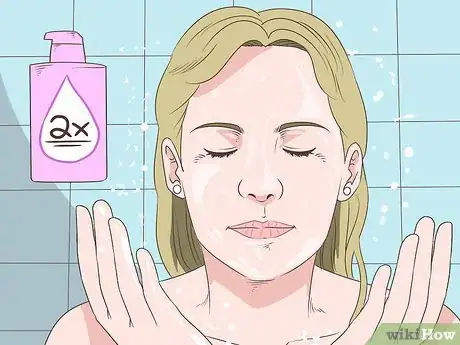
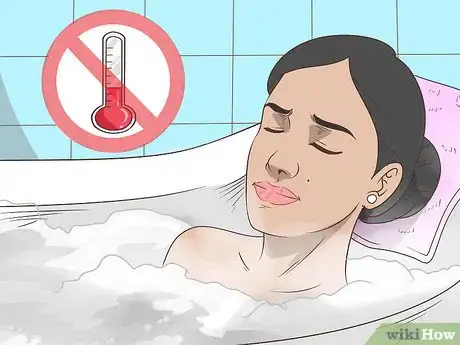

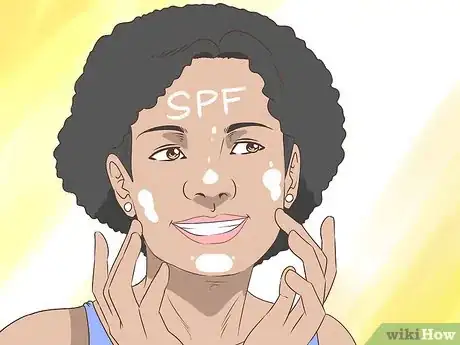
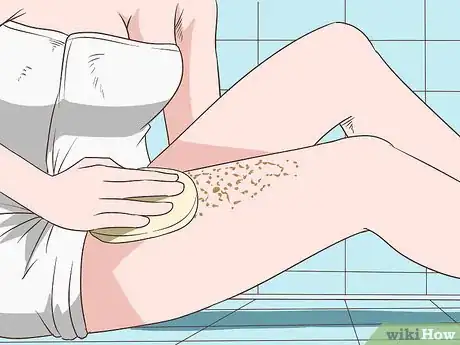
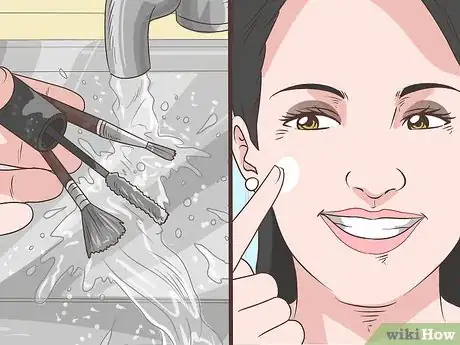
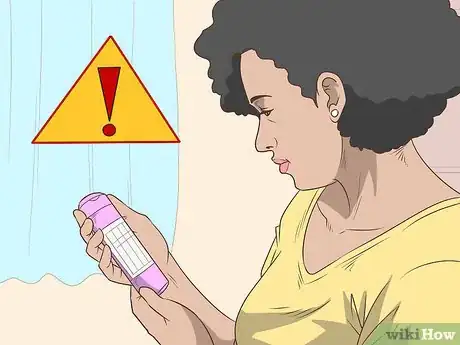


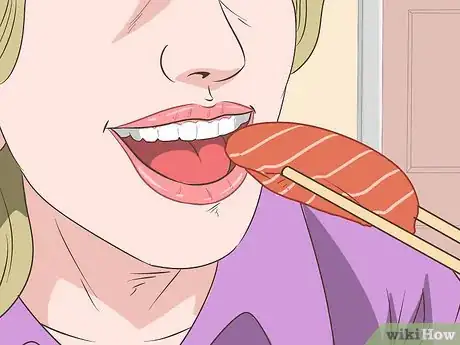
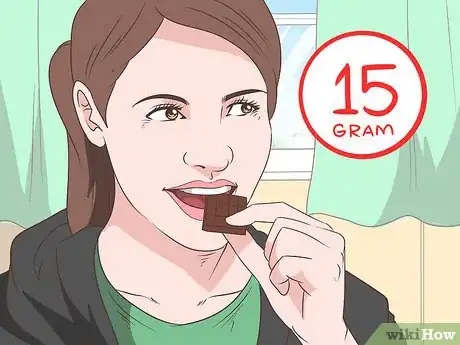





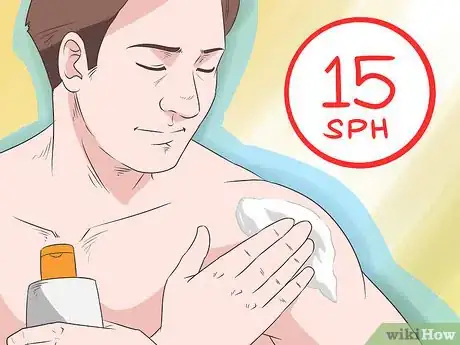

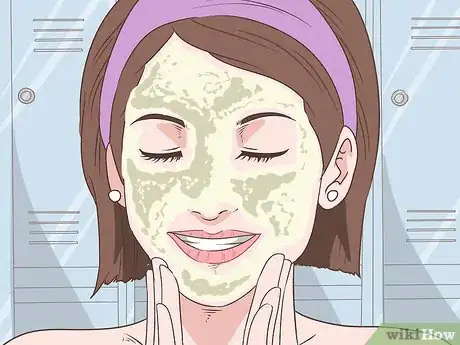
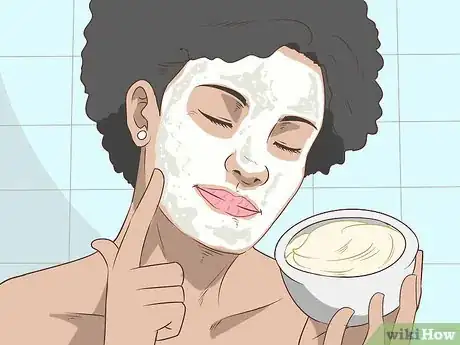
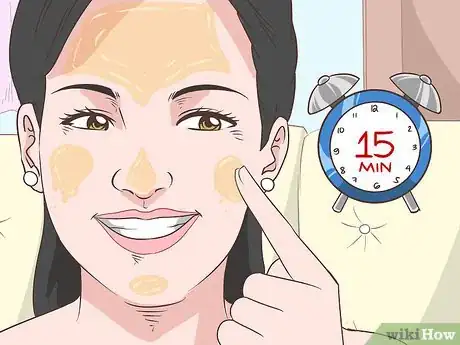
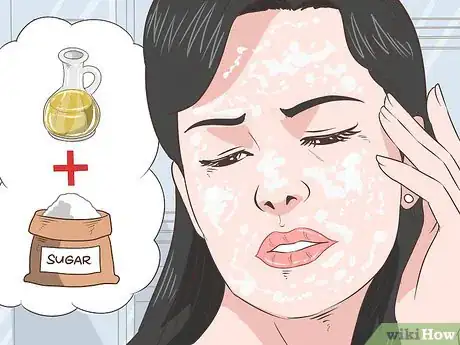

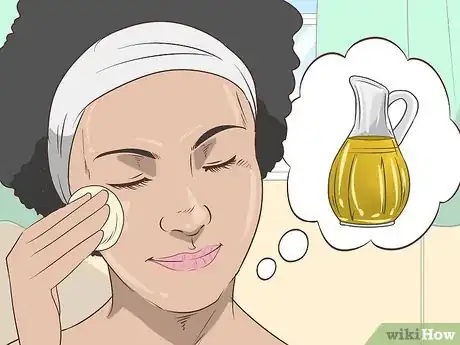







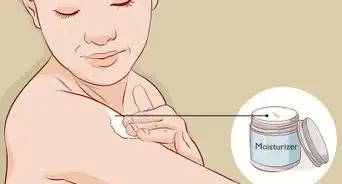




-Step-12-Version-3.webp)















































